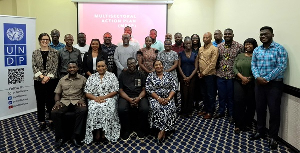Professor AV. Dicey, a great constitutional lawyer in the 1980s, was quick to aver that there should be due process and certainty of the law. By certainty of the law, the learned professor meant that enacted laws should be highly open and accessible by any person who is subject to the jurisdiction of the state. One of the avowed intentions of the principle, ignorance of the law is no excuse, is as a means of social control, to discourage flippant or groundless defence and reinforce the need for the citizen to be aware of both the criminal law and legal developments.
Presumed knowledge of law is a principle in jurisprudence that one is bound by law, even if one does not know of it. The essential public character of a law requires that the law must apply to anyone in the jurisdiction where the law applies. Thus, no one can justify his conduct on the grounds that he was not aware of the law. Generally, a contention exists (the essential priminary rule) by which the law is issued and render accessible by methods, authorship, publications and other means that are simple and well known: the law is readable in certain places (some systems prescribe that a collection of laws are copied in every local city council), is made by certain authorities (usually sovereign, government, parliament, and derivative bodies) and enters into effect in certain ways (Many systems for instance prescribe certain number of days - often -15 after issue). This is commonly intended as a constitutional regulation, and in fact many constitutions or statutes exactly describe the correct procedure (credit to Wikipedia Encyclopedia).
Article 11(7) of the 1992 Constitution of Ghana demands that any Order, Rule or Regulation made by a person or authority under a power conferred by the said constitution or any other law shall be published in the Gazette on the day it is laid before Parliament and come into force at the expiration of twenty-one sitting days after being so laid. Per Article 106(2) (b), which says no bill shall be introduced in Parliament unless it has been published in the Gazette at least fourteen days before the date of its introduction in Parliament. The combined effect of the above articles is to, as a constitutional measure; notify the public about the legal development and the need to abreast themselves. Ghana being an advocate of rule of law has included the above provisions in her supreme law.
The bamboozling aspect of the situation is, majority of Ghanaians in fact do not know the form that the above gazette takes, yet we are making and enforcing laws everyday as published by the gazette. In effect, there is great difficulty in accessing gazettes in Ghana.
Worst of all, even after any of our laws has come into force; it becomes very thorny to access it. Even on the Ghana website, apart from the 1992 Constitution and few enactments that upon vigorous research could be found, greater part of our laws are absent. Sadly enough, most of our Information Departments and that of the Attorney- General throughout the country do not have in their custody any or majority of our laws. Even most of our lawyers would not have most of our laws except they IMPORT them from the national capital, Accra. Unless one takes the pain to travel to Accra and locate the Assembly Press’ premises to buy a copy of any law operating in the country; he would be far from the law. It is certainly very undemocratic and extremely inequitable for one to travel to the capital city before the assessment of any our laws become possible.
It is submitted that since all the laws of Ghana are applicable to all parts of the country, the accessibility of the same laws should IN THE SAME MEASURE be feasibly applied in every constituency of the country.
According to Article 41(b) of our constitution it shall be the duty of every citizen to uphold and defend the constitution and the law. The writer of this article wonders how best the citizenry can execute this nationalistic obligation when the accessibility of most of our laws seems to be impossible. It is not enough for us to be always professing our belief in rule of law but to practically translate its principles into reality. Rule of law requires that the law should be certain. It is my humble submission that, the laws of Ghana should be rendered more accessible in such forms that are simple and common to give meaning to rule of law in the country. The principles of equity and good conscience would be worthless in this country if we construe the principle of presumed knowledge of the law strictly without making our laws handier to those who are to be affected by such laws. What is worth doing must be worth doing well.
NO ONE LIGHTS A LAMP AND PUTS IT UNDER A BOWL; INSTEAD HE PUTS IT ON THE LAMPSTAND, WHERE IT GIVES LIGHT FOR EVERYONE IN THE HOUSE-MATTHEW 5:15
.















